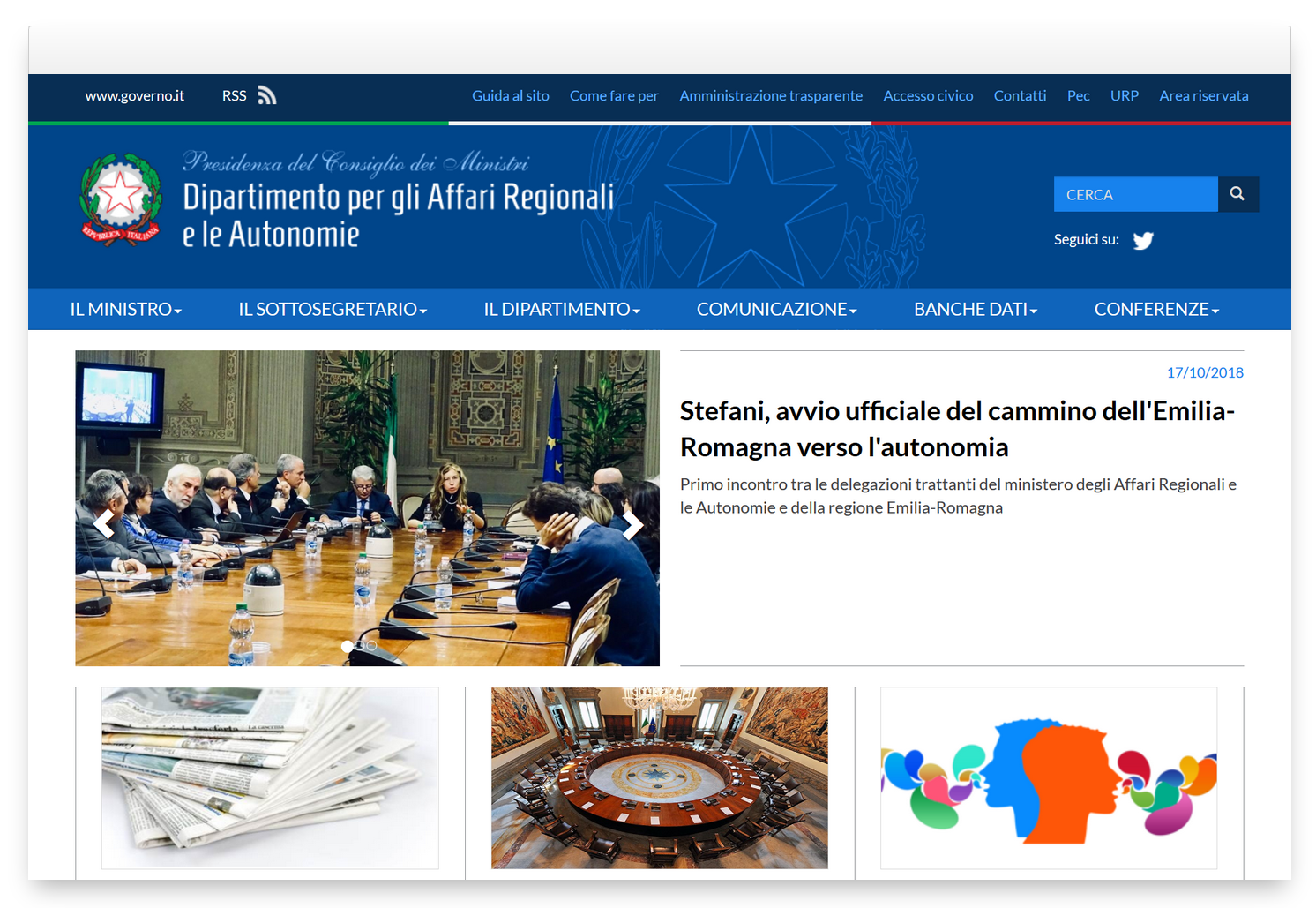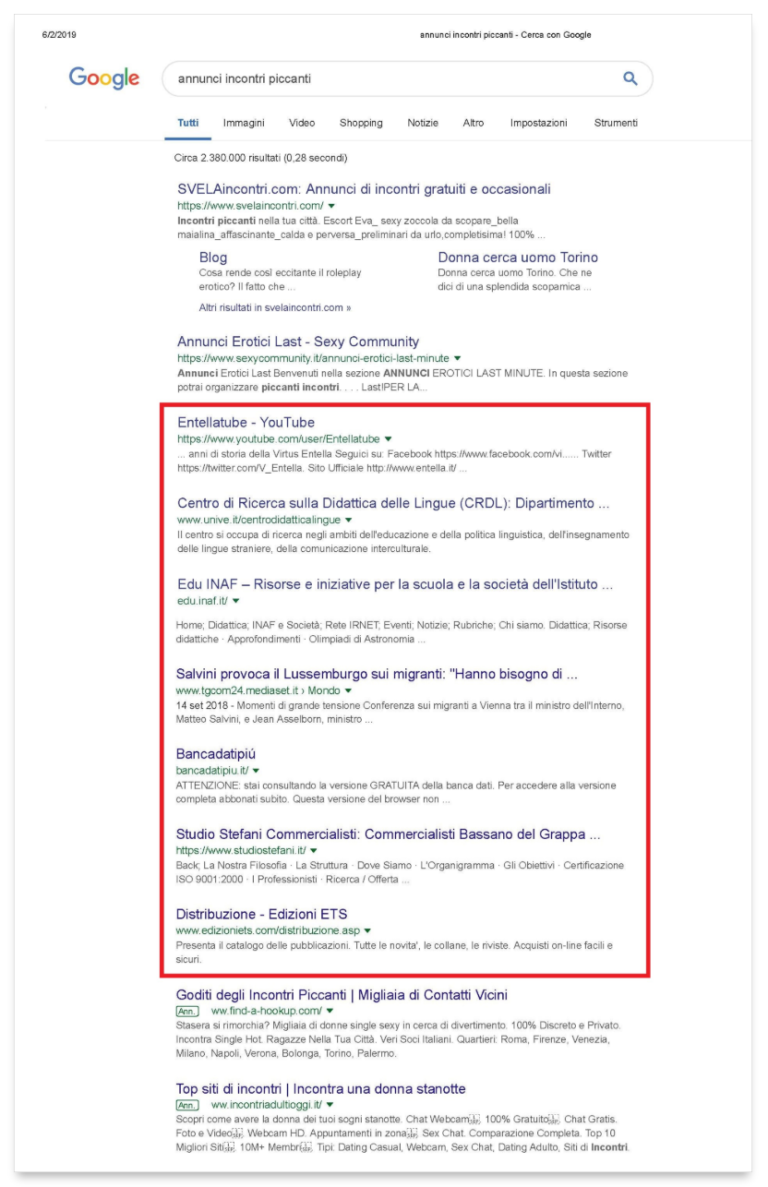From time to time, we see some extraordinary things in our data. Last week our Italian country manager Elisa took a closer look at just that. Strange things are going on in the Italian Google search results.
When public agency and corporate website visibility shoots up we always take a look for new content. When that content is ranking for adult search terms it’s usually easy to find a hack but in this case, it wasn’t.
Government department ranks for “hot dating chat.”
During the annual look at the top winners and losers of 2018 it was clear that several websites simultaneously increased their visibility for a short time, for no obvious reason. More importantly: for completely non-relevant keywords. Here’s one of the websites….

And here’s what happened to their Visibility…

From nothing…to thousands of non-relevant ranking keywords, with many hundreds in the top 10. Nearly all are adult search terms, and you don’t need to be able to read Italian to work that out from the table below.

Hacked?
It’s nothing new to see a website hacked and then ranking. James Blunt was a victim last year and that’s the first line of investigation that was taken.
However, there’s no clear indication that the website is hacked. The ranking content appears nowhere in the HTML or even in Javascript content. This is where the story gets interesting.
It’s an enormous rise in visibility, for completely irrelevant search terms and yet there’s no evidence of a hack. Importantly, it’s not the only website example.

Our data shows the website for Tecno Casa Group ranking for 148 search terms containing the word ‘woman.’ This is a company that sells and rents property!
The Tecno Casa Group’s search hits, which appear in the SERPs for the search term “piccanti” (hot), do not include the specific keyword in the title, source code or cache. A simple (local) site query makes that clear:

Other examples include bancadatipiu.it and museodiroma.it. The latter is the website of the Museum of Rome!
After checking both via local contacts in Italy and via a good quality VPN it was clear that the SERPs were completely wrong. The example below is for the search term “erotic dating ads” and it’s full of irrelevant websites.

The search results marked in red on the chart are websites of universities, news, publishers or tax consultants and banks that Google shows for “erotic dating ads”.
Imagine the Italian users looking for a partner, but getting these frustrating results presented time and time again by authorities and universities. Trust us when we say that we tested a number of related search terms and the results were similar. Non-erotic websites shown include:
- Government organisations: (turismopiemonte.it, aeronautica.difesa.it)
- Universities. (unito.it, unife.it)
- Banks (emilbanca.it)
- Estate agents (casa.it, tecnocasagroup.it)
- Museums (museodiroma.it museocasaldepazzi.it)
- News portals (ansa.it, tgcom24.mediaset.it)
The examples above are just a few. The Italian search results look crazy. Something is not right.
Google Results Manipulated?
Does Google have a technical problem? Is the problem with the search engine, or is it possible that the results are being manipulated ?
Our Italian reader Martino Mosna has already commented on the original Italian SISTRIX article with a theory.
Martino suggests that it’s possible to copy the affected pages and rebuild them so that Google, for a short time, does not know whether the original or copy should rank. Between the crawls, however, the contents of the copy site are changed to ensure that the results are achieved. We can’t comment on this theory, but it’s an interesting one.
And finally, a test by Google Italy is unlikely for many reasons. This blanket-coverage of incorrect results is too much.
You can read the Italian article and translate the comments in Google confonde le SERP on our Italian SEO blog.
If you have thoughts or theories, please don’t hesitate to comment below.